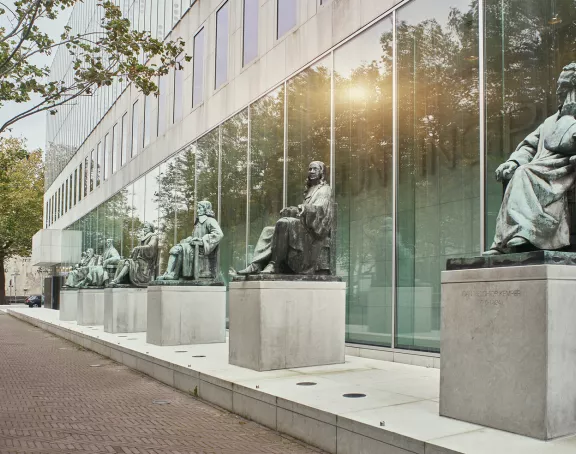No reformatio in peius in Dutch civil procedure: a principle to be cherished?
It’s a classic principle of Dutch civil procedure on appeal: the prohibition of (as the Latin saying goes) reformatio in peius. This principle means that the outcome of appeal proceedings may not be that a party ends up in a worse position as a result of its own appeal against a decision by the District Court. If, for instance, the District Court awards damages only in part and the claimant appeals because it wants to obtain the damages claimed in full, the reformatio in peius principle means that the Court of Appeal cannot award a lower amount in damages than the District Court did (even if the Court of Appeal disagrees with the District Court).
The justification for this principle is based on party autonomy: it would be a violation of party autonomy if a party appealing in order to obtain a better outcome would end up worse off. The reformatio in peius principle (therefore) does not apply to an appeal by the other party: if the (original) defendant appeals the District Court’s decision to partially award damages, arguing that no damages should be awarded at all, the Court of Appeal may (of course) issue a ruling to that effect if it agrees with the defendant.
Reconfirmation of the principle by the Supreme Court
Earlier this year, on 13 January 2023, the Dutch Supreme Court reconfirmed the reformatio in peius principle (ECLI:NL:HR:2023:29). The case concerned proceedings on the Dutch debt restructuring scheme for natural persons: a kind of ‘light’ variant of bankruptcy. After three years of paying off debts as much as possible, a debtor who is admitted to this scheme starts with a ‘clean slate’. In the case at hand, the District Court decided to award this clean slate. However, the District Court also decided that the debtor still had to make an alimony payment before a certain date and that if the debtor did not do so, the clean slate could be cancelled. The debtor appealed against the District Court’s decisions on the alimony payment and the possible cancellation of the clean slate. However, the Court of Appeal rejected the clean slate altogether since it saw no legal ground for a ‘conditional’ clean slate as awarded by the District Court (in the interpretation of the Court of Appeal).
The debtor complained before the Supreme Court that the Court of Appeal’s decision was a prohibited reformatio in peius. As a result of her appeal against the District Court’s decision, the debtor ended up with no clean slate at all. The Supreme Court agreed. The Court of Appeal should not have rejected the clean slate, but should have annulled the District Court’s decision of the alimony payment as a ‘condition’. On the basis of, among other things, this violation of the reformatio in peius principle, the Supreme Court annulled the Court of Appeal’s decision and annulled the (reviving) District Court’s decision in so far as the alimony payment to be made was concerned, resulting in an ‘unconditional’ clean slate.
Reformatio in peius and the boundaries of the appeal
The debtor also complained that the Court of Appeal had breached another principle of Dutch civil procedure on appeal, namely that a Court of Appeal may, in principle, decide a case only within the boundaries of the appeal set by the appellant. On appeal, the debtor had not contested the District Court’s decision to grant the clean slate as such, but only the ‘condition’ of the alimony payment. The Supreme Court agreed that also for that reason, the Court of Appeal should not have rejected the clean slate.
This gives rise to the question how the reformatio in peius principle relates to this rule. Is a separate reformatio in peius principle really necessary to avoid the appellant ending up worse off, or does the rule that the Court of Appeal should decide within the boundaries of the appeal, set by the appellant himself, already provide sufficient guarantee? I discussed this question in a case note in the Dutch civil procedure law review JBpr (2023/27), concluding that there are cases conceivable in which the reformatio in peius-principle would actually be necessary for that. For instance, in case of discussion about the boundaries of the appeal or in case exceptions to this rule apply. It is, therefore, a principle to be cherished even though in practice there may be an occasional overlap.

